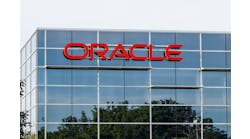A federal challenge grant is helping the HealthShare Exchange (HSX), a nonprofit health information exchange (HIE) for the Greater Philadelphia and the Delaware Valley, jump-start the work of its HSX MarketStreet business arm. The $1.5 million in funding will help HSX develop the platform for innovators and companies that wish to take advantage of the HIE’s data for clinical or consumer-facing applications.
To support this effort, HSX received an innovation and entrepreneurship-based economic development grant from the U.S. Economic Development Administration. The i6 Challenge funding is part of the EDA’s Regional Innovations Strategies Program, a national program focused on regional economic capacity building.
HSX has current and longitudinal medical information on more than 8.5 million people in the Greater Philadelphia/Delaware Valley service region. The grant will help HSX’s MarketStreet platform facilitate secure data transfer to companies and entrepreneurs to drive new products and services meant to improve health and healthcare. The grant is referred to as a “challenge award” in part because it is based on matching funds from recipient sources. From HSX’s own development budget, HSX’s board of trustees approved a $750,000 match of the awarded federal monies, bringing the total funding to $1.5 million.
HSX MarketStreet (HSXMS) recently became a separate, wholly owned subsidiary of HSX and a for-profit company (with the parent HSX remaining a nonprofit. The new organization named MarketStreet, shares its name with the central business location in Center City Philadelphia from which it was launched, and which was one of the original public market sites in the country.
HSXMS said it aligns with and supports federal programs and guidance –– and the new CMS proposed rule –– on expanded access by patients to, and benefits from, their own health records. The new entity also increases HSX’s value to members, as another community asset for its participants.
“We have built a marketplace that will support our provider and payer community, making a platform available in a manner similar, for example, to what Apple and Google have done,” said Rakesh Mathew, HSX’s chief innovation officer and senior director of technology in a recent interview with Healthcare Innovation. “For this connectivity platform, we have the APIs [application programming interfaces] and we have the data through our membership of payers and providers. We are going to expose that data through FHIR-based APIs to applications that want to connect with it. Once you connect, and consumer users authenticate and consent within your application, they can access their own data for a variety of purposes –– and can store it or share it.”
Among HSX’s goals are to create or grow 50 or more new digital health companies and add 150 new jobs in the region in the next five years –– and to leverage HSXMS to promote the long-term financial stability of HSX as a whole.
“We are not in the business of creating apps,” Mathew explained. “We are in the business of facilitating others who want to create apps or enhance their existing interfaces with healthcare data. We are inviting developers from across the country to our Hackathon May 31 - June 4, 2019, here in Philadelphia. We have created a sandbox that we provide to start-ups so they can evaluate and create their products.” (The final two days of the Hackathon will take place in conjunction with the 2019 Healthcare Innovation Mid-Atlantic Philadelphia Health IT Summit at the Hilton Philadelphia City Avenue on June 3 and 4, 2019.)
For this year’s event, HSX MarketStreet has developed a consent and authentication module that hackers will be able to leverage during the event. This consent and authentication module can be layered onto a new or existing product that will enable the end users identify to be authenticated and allow the user to consent to having their clinical data from the HealthShare Exchange Clinical Repository sent into the application.
The organization’s website notes that the HSX MarketStreet Sandbox API is modeled after the HSX production API infrastructure and is an accurate representation of the HSX MarketStreet production data and production API infrastructure. Sandbox APIs are not connected to and will not transfer any real personal health information from the health information exchange. Sandbox API patients are fictitious composites of typical patients.
The first MarketStreet application created was "JeffDocs," an app from Philadelphia-based Jefferson Health that allows providers to refer their patients to Jefferson Health providers. The app was initially focused on creating a provider directory for all of the health system’s locations, but then the Jefferson Health team tapped into the APIs of MarketStreet to enhance the app to allow transfer of patient information to enable direct referrals, too.
How does MarketStreet compare to similar platforms being created by EHR vendors? “Epic’s App Orchard is based on data from one EMR system,” Mathew said. “But on HSX MarketStreet you are connected with more than 30 EMRs and 2,000 facilities, including hospitals and long-term care facilities, ambulatory practices, and payers. If you think about the App Orchard, multiply it by a factor of 10 or 20, that is the scale we have in this region.”
He said one goal is to reduce the cost of implementation not only for the vendor partners but for HSX members. “If a new company tried to sell their product and integrate it with 20 hospitals, it would take them many years and millions of dollars,” he explained. “If they connect with MarketStreet they have the ability to connected to those hospitals, and their clinical data and patients, immediately. These companies can focus on selling their individuals products and marketing their own companies, and so don’t have to worry nearly as much about data and technology implementations.”


